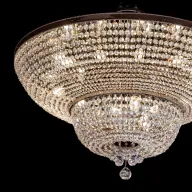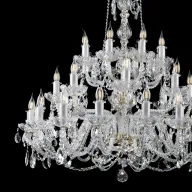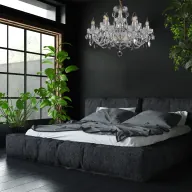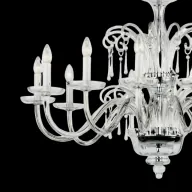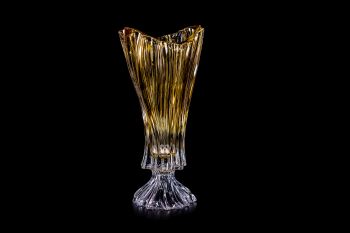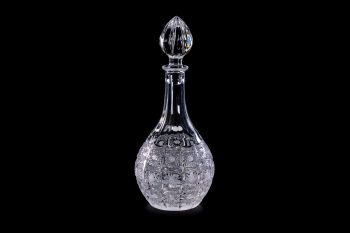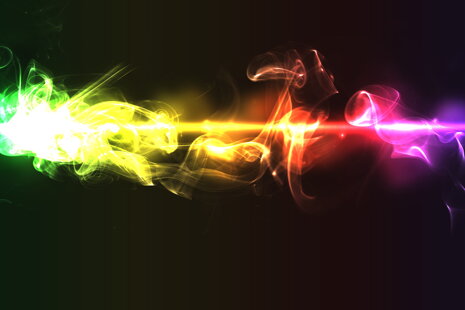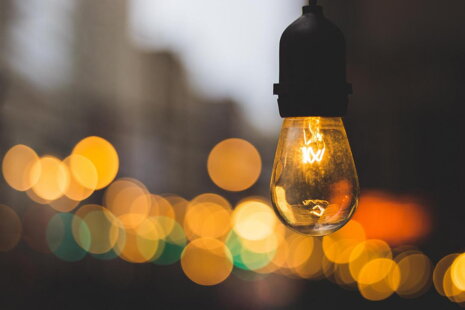Light affects health more than we think
Added 22.2.2021 10:30.55
Some of us are “night owls”, some “early birds”, but all of us carry around inside clocks that are set to a similar time. These clocks manage our active or subdued phases over the course of 24 hours, according to the amount of light we absorb. This is called a circadian rhythm.
Up with the lark and off to bed when the chickens roost
Back in the old days, the circadian rhythm was completely natural. Our great-grandmothers used to get up at dawn, they spent the majority of the day outside, and went to bed shortly after sunset. Thanks to sunlight, their bodies had enough energy to stay in motion, digest food, etc. In contrast, the sun going down was a clear signal for people to power down, relax, and get ready to sleep. During the night, the body had time to repair, cleanse and rest. People's organs were active or would rest when it was natural for them. And most importantly, the right hormones were created at the right time. Let's take a closer look at some of them.

Three leading hormones
Cortisol
One of the best-known hormones is cortisol – the stress hormone connected to activity and motion. Its highest level should be in the morning around nine o'clock, and then its level should gradually decrease until evening. However, if we are exposed to stressful situations during the day, have a coffee or two, sleep poorly or little at night, and we are not getting enough daylight, it may create a problem: the cortisol curve can be completely reversed. A lack of cortisol in the morning makes us tired, and we cannot "start the day" without the obligatory coffee; in the evening we experience stress, we stare at our monitors, or we pour ourselves another coffee, and cortisol levels rise more than they should.
Serotonin
Serotonin is another important hormone, popularly regarded as the happy hormone. If there is plenty of it in our bodies, we feel good, we have a positive, balanced outlook. With lower levels of serotonin, anxiety, depression or migraines can occur. Its production closely corresponds to the amount of daylight.
Melatonin
Melatonin deserves a chapter to itself, it is the hormone responsible for quality sleep. Every cell in the body needs it to regenerate. In addition, it significantly strengthens our immunity and protects us from cancer. Its lowest level should occur in the morning, while most melatonin is produced at night (production peaks at 3 am). Its curve should be the reverse to that of cortisol. Unfortunately, the opposite is often true.
Circadian rhythm upside down
How beautiful it would be if we always had exactly as many individual hormones as we needed. But humans, as intelligent creatures, invented lighting and turned the circadian rhythm literally upside down:
In the morning and all day we are shut inside buildings and have a complete lack of daylight. No wonder we are tired and without energy. In the evening we turn on artificial lights, and at night the streetlights often shine into the bedroom, making the body think it is daytime. This results in a lack of much-needed melatonin. In short, we lack natural light and natural darkness, the organism is confused and does not know what hormones to produce.
Nowadays, a big topic is the so-called blue light. This is a natural part of the light spectrum, with a wavelength of 450–500 nm, and is important for our activity. Thanks to blue light, the body knows what is expected of it. If we spend time outside and talk in the evening by candlelight, we receive exactly as much as we need. The problem arises when we watch TV, look at a computer monitor or tablet, or chat on a mobile phone before bedtime. All these devices emit a high proportion of blue light and tell the body that it is day and that it should be active. Again, this causes melatonin deficiency and cortisol levels that are too high. Although the person may fall asleep, the body does not rest, and processes continue inside it as if it were a day.
Everything is exacerbated during the short days of winter. We absorb even less natural light than usual, and for example, the aforementioned serotonin does not have a chance to form in sufficient quantities. This, among other things, leads to winter anxiety and even depression.

Disruption of the circadian rhythm has a fundamental effect on health
Having a properly set circadian rhythm is absolutely essential if you want to be healthy, have enough energy and feel good. This is proven by a large number of scientific studies. For example, it has been shown that there is a connection between an increase in obesity and excessive artificial lighting at night. A disrupted circadian rhythm can lead to immunodeficiency, depression, migraines, hypertension, and even cancer. We can never have enough energy if we only have a little cortisol during the day and a lot in the evening; we cannot be in a good mood if we do not make enough serotonin; our body does not have a chance to regenerate or rest at night if we do not allow it to make the right amount of melatonin.
Back to nature
How do we break the vicious cycle? The simple advice would be: adapt your daily routine as much as possible to nature and live in harmony with it. Easier said than done, of course: modern life places extraordinary, unnatural demands on us, so we need to find a compromise. Therefore, here are at least a few tips:
- Go to bed and get up early. Sleep for a minimum of 7.5 hours.
- In the morning, go outside for a while so that the body gets its dose of natural daylight and therefore the information that it is daytime and the body is supposed to produce "day" hormones.
- Do sports more in the morning and during the day, and start to wind down in the evenings.
- Expose yourself to natural daylight as much as possible.
- Turn off your computer, tablet, mobile phone, TV and Wi-Fi at least two hours before going to bed.
- Do not eat or drink two hours before going to bed.
- Make sure your bedroom is completely dark and quiet.
- Do not use a night light for children, teach them to sleep in the dark.
- When you have to get up at night, turn on a red, not a white light.
Lighting has a fundamental affect on the whole situation
Lighting is important: its powerful effects can be positive or negative. What lighting should we choose?
- It is necessary to ensure the greatest possible supply of natural daylight in rooms. If this is missing, it must be replaced with artificial light.
- Artificial lighting during the day should simulate natural daylight as accurately as possible, i.e. it should contain the correct proportion of so-called blue light. And it should be intense, especially in winter.
- Chandeliers made of crystal are a great option, because crystal can increase the intensity of light.
- The best kind of lighting allows us to change its intensity and colour (content of the blue component) during the day.
- In the bathroom, it is recommended to have one dim, warm light, which we can augment in the morning with another – a bright white light, one that is more similar to daylight.
- In the evening, muted, warm tones should be chosen, such as we experience with the setting sun.
A little bit of nostalgia to finish with...
Surely each of us can remember a time we have spent in a village or a mountain hut, where there were no street lamps and the sky was full of stars...
Because we were not disturbed by the lights of the big city, in the evening we sat by the fireplace, flickering flames lighting the room, and all day we spent outside, on walks or in the garden, soaking up the sun.
Although this scene is usually a far cry from our everyday reality, it still makes sense to try and gradually return to natural rhythms. Whether that means a lifestyle change, new lighting technologies, or a combination of both.








